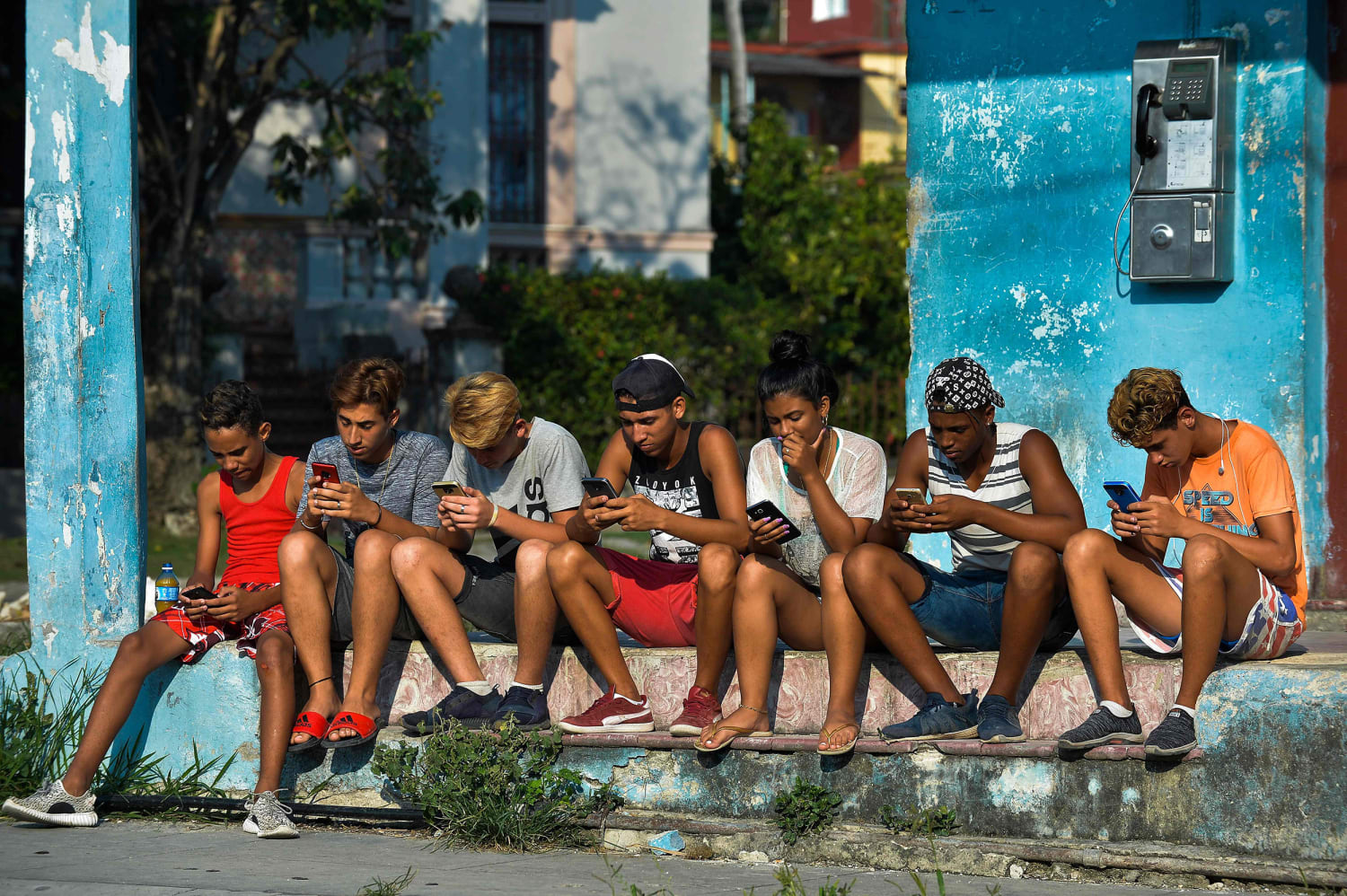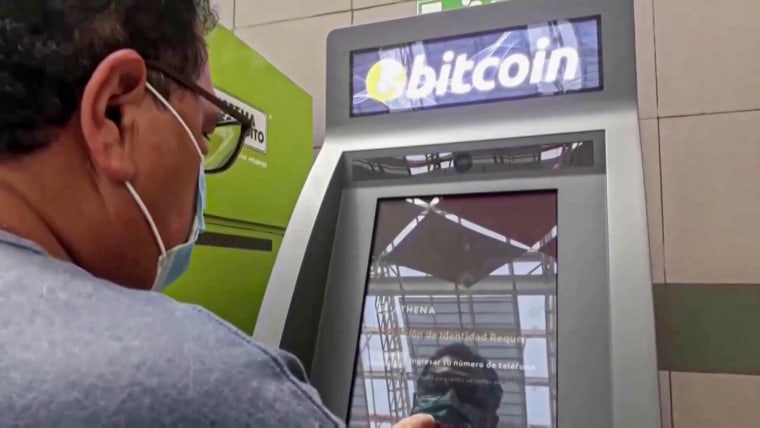HAVANA — When it comes to money, Cubans are between a rock and a hard place: clamped between a hawk-eyed Communist Party jittery about the accumulation of private wealth, and the effects of decades of U.S. sanctions that lock them out of the global financial system.
But many are finding a way out with cryptocurrencies, the use of which has grown exponentially in recent years.
When Alex Sobrino launched the island’s first cryptocurrency group, the Telegram channel CubaCripto, on New Years Eve 2018, there were, he said, fewer than 50 people in the country using cryptocurrencies. “We didn’t even know each other,” he said.
Now, with more than 5 million Cubans using mobile internet, informal estimates put the number of Cubans using currencies like bitcoin, ethereum and avalanche at between 100,000 and 200,000.
The 1 to 2 percent of the island’s population that uses cryptocurrencies is far lower than the 16 percent of Americans who have carried out cryptocurrency transactions or the more than half of Salvadorans who now reportedly have cryptocurrency apps (El Salvador last year became the first country to adopt bitcoin as legal tender). Still, for an island “frozen in time,” uptake has been swift.
The growth has been spurred by the launch of mobile internet on the island three years ago, along with tightened U.S. sanctions.
The key moment came in 2020, when the Trump administration banned Americans from sending remittances to their families through Western Union, which was the main way for many Cuban Americans to send money to their families. In one fell swoop, a revenue stream worth billions of dollars was cut. With no flights into the country because of the pandemic, there was no means of bundling in greenbacks. With families suffering, people looked for new ways to send money.
“When Western Union ceased to exist, there was a big rise in remittances via cryptocurrencies,” said Erich García, founder of BitRemesas.com, a company that now processes crypto remittances.
“One of the alternatives were Telegram groups,” said Sobrino. “People created groups where they only talked about crypto exchange rates: ‘I have a relative that lives in Chile, I can give you crypto and you give me pesos, OK?’”
At first, people receiving bitcoin from abroad would meet up with those wanting cash in person to hand them dollars, euros or Cuban pesos. This continues today, but the crypto remittance system has become more institutionalized: Companies like BitRemesas.com now pay local currency directly into people’s bank accounts.
Cubans are now using cryptocurrencies for a range of activities. With inflation well over 100 percent last year, some use them to protect their savings.
Others have given up their low-paying day jobs to make a living by trading. Last year the government issued a warning and said it was investigating possible cryptocurrency scams that had affected thousands of Cubans.
One can now even use bitcoin to buy a coffee or a beer in a handful of Havana’s upmarket bars, although consumer uptake has so far been low.
Bitcoin doesn’t recognize borders
U.S. sanctions on the island lock Cubans out of many everyday services that Americans rely on: App Store, Skype, eBay and Amazon are all off-limits.
Not a problem, said García, the remittances company owner, who calls crypto the “holy grail” of the Cuban private sector.
“Goodbye, see you later, we don’t need you anymore,” he said of PayPal, Zelle and Visa. “You don’t deliver services to me? OK, no problem — I will use cryptocurrency to expand my business.”
“We no longer think: ‘I’m Cuban so I can’t use this.’ No — bitcoin doesn’t recognize borders,” said software developer Eyonys González, 33, who pays for web hosting, antivirus and other software licenses with bitcoin.
With imports controlled by the unwieldy state, savvy entrepreneurs have begun importing goods for their small businesses directly, paying for phones, motherboards and transistors in crypto. “Mules,” a local term for people who carry products for others in their suitcases, bring them into Cuba for a fee.
There are service exports too. Camilo Noa, 31, uses Slyk, an e-commerce application, to sell his services as a social media community manager. He has received payment from companies in the U.S., Europe and Latin America.
This is, in essence, routine e-commerce, which took off in the U.S. in the 1990s. But though Cubans have had limited internet in universities, workplaces and public libraries for more than a decade, prior to crtypto there was no way for them to sell their wares online.
While China’s Deng Xiaoping pronounced “to get rich is glorious” back in 1986, there has never been any similar proclamation by the Communist Party of Cuba, which to this day — despite permitting more small- and medium-sized businesses to crop up — remains anchored to the idea that concentration of private wealth is dangerous (because of the increased economic inequality it would engender and because the emergence of a capitalist class could eventually challenge the party).
Some of those interviewed for this article were cagey about revealing their clients. As in other countries, a major draw of cryptocurrencies for Cubans is their potential anonymity, which shields users from a prying state — and the tax man.
“Cryptocurrencies represent financial freedom, getting away from centralization and inflation — and they also ensure you’re not watched over by any entity,” said Sobrino, who now lives in Uruguay.
Cuban government ‘evaluating’ its use
Some irony, then, that the Cuban government seems interested, too.
The island recently issued new regulations for the use of cryptocurrencies; this month the Central Bank will begin issuing licenses to virtual asset service providers.
President Miguel Díaz-Canel has said that the country is “evaluating the advisability” of using cryptocurrencies. And the national oil company and the pharmaceutical sector are now “using blockchain technology,” according to state media, although how and to what extent is unclear.
Analysts say that unlike China, which last year banned cryptocurrencies on environmental and anti-money laundering grounds, the fact that Cuban authorities are creating a regulatory framework shows they believe crypto can bring benefits.
U.S. courts have hit European banks with billions of dollars in fines for conducting business with the island, as well as with other sanctioned countries. Since the Trump administration relisted the island as a state sponsor of terrorism — after the Obama administration had taken it off the list as part of an opening of relations between the two countries — making payments for regular commodities such as fertilizer, machinery and vaccine syringes have become even more acute.
“It’s a kind of an intimidation of businesses in third countries who want to do business with Cuba,” said Emily Morris, a specialist on the Cuban economy at University College London. So “it is not at all a surprise that people in Cuba are looking at this because if you could do transactions directly between two parties, which don’t have to go through a bank, just through a separate channel, then that would be of interest.”
Venezuela launched the petro in 2018, a cryptocurrency pegged to the price of oil. The Central Bank of Iran said in January that it had created a system that allows local merchants to pay international partners with crypto.
“You can’t block the use of any blockchain whoever you are; whether you are a government, an institution, you are a person, you can’t block Cubans from using cryptocurrencies. That’s a fact,” said García, the entrepreneur.
Sobrino suspects the Cuban state may already be using cryptocurrencies to make payments. Over the past couple of years, he says, he has been contacted by government researchers for insights.
“The government might be irked that Cubans are using currencies they don’t control,” he said. “But it’s in their interest to use cryptocurrencies because they can make payments without the U.S. government canceling their accounts.”
Follow NBC Latino on Facebook, Twitter and Instagram.
Source: | This article originally belongs to Nbcnews.com












